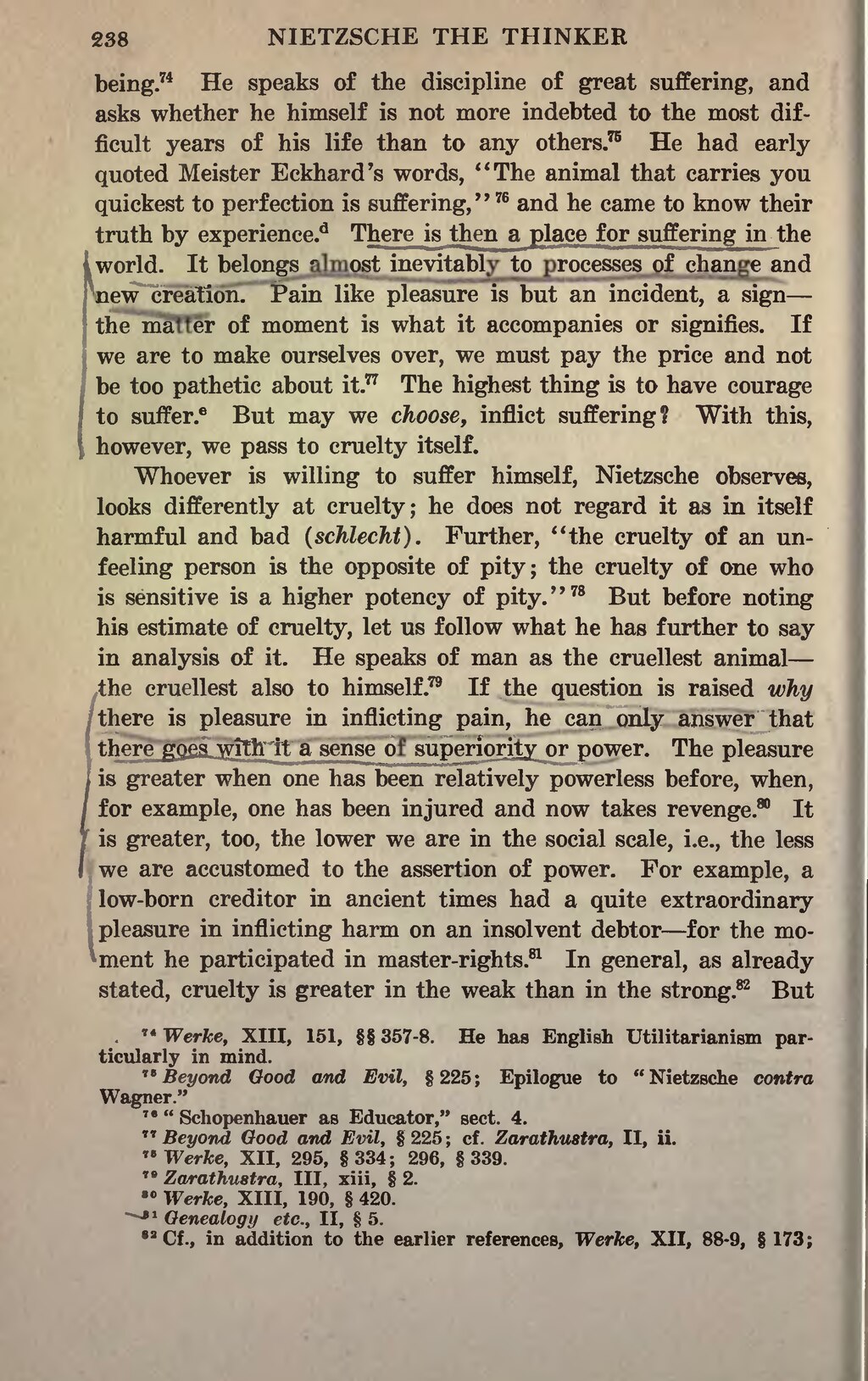being.[1] He has English Utilitarianism particularly in mind. He speaks of the discipline of great suffering, and asks whether he himself is not more indebted to the most difficult years of his life than to any others.[2] He had early quoted Meister Eckhard's words, "The animal that carries you quickest to perfection is suffering,"[3] and he came to know their truth by experience.d There is then a place for suffering in the world. It belongs almost inevitably to processes of change and new creation. Pain like pleasure is but an incident, a sign-the matter of moment is what it accompanies or signifies. If we are to make ourselves over, we must pay the price and not be too pathetic about it.[4] The highest thing is to have courage to suffer.e But may we choose, inflict suffering? With this, however, we pass to cruelty itself.
Whoever is willing to suffer himself, Nietzsche observes, looks differently at cruelty; he does not regard it as in itself harmful and bad (schlecht). Further, "the cruelty of an unfeeling person is the opposite of pity; the cruelty of one who is sensitive is a higher potency of pity."[5] But before noting his estimate of cruelty, let us follow what he has further to say in analysis of it. He speaks of man as the cruellest animal—the cruellest also to himself.[6] If the question is raised why there is pleasure in inflicting pain, he can only answer that there goes with it a sense of superiority or power. The pleasure is greater when one has been relatively powerless before, when, for example, one has been injured and now takes revenge.[7] It is greater, too, the lower we are in the social scale, i.e., the less we are accustomed to the assertion of power. For example, a low-born creditor in ancient times had a quite extraordinary pleasure in inflicting harm on an insolvent debtor—for the moment he participated in master-rights.[8] In general, as already stated, cruelty is greater in the weak than in the strong.[9] But
- ↑ Werke, XIII, 151, §§ 357-8. He has English Utilitarianism particularly in mind.
- ↑ Beyond Good and Evil, § 225; Epilogue to "Nietzsche contra Wagner."
- ↑ "Schopenhauer as Educator," sect. 4.
- ↑ Beyond Good and Evil, § 225; cf. Zarathustra, II, ii.
- ↑ Werke, XII, 295, § 334; 296, § 339.
- ↑ Zarathustra, III, xiii, § 2.
- ↑ Werke, XIII, 190, § 420.
- ↑ Genealogy etc., II, § 5.
- ↑ Cf., in addition to the earlier references, Werke, XII, 88-9, § 173;
